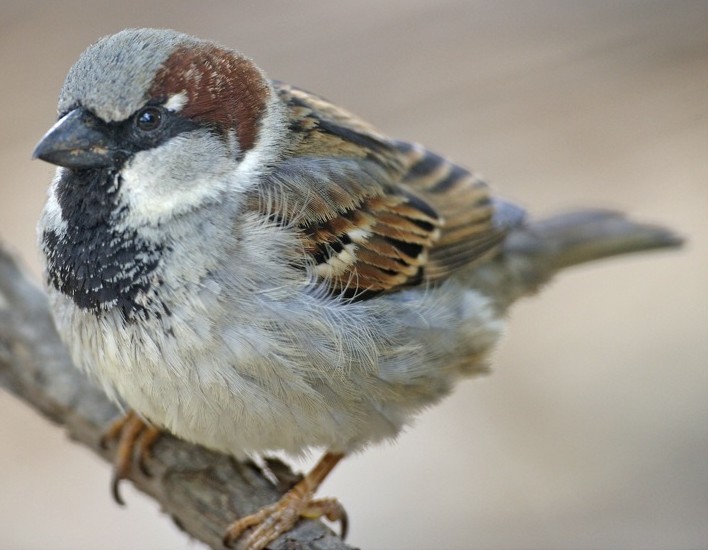My old friend and mentor Jim Baillie [1] used to delight in the fact that many of the birds we’d see in our birding trips around southern Ontario would say their name: killdeer, curlew, godwit, whip-poor-will, owl, crow, raven, flicker, phoebe, pewee, chickadee, (jay; but see below), veery, pipit, towhee, and bobolink.
Jim sometimes gave his own nicknames to birds, reflecting their songs or calls. My favourite was ‘jib-jib’, his name for the English (now House) Sparrow. Even in his field notes he called them ‘jib-jibs’.

Naming birds by the sounds they make seems very natural to me, but how common is it, really? In English-speaking North America (Canada and USA), there are 10 more common birds that can be added to the list above: kittiwake, murre, quail, kiskadee, willet, pauraque, bobwhite, chuck-will’s widow, poorwill, dickcissel.
Such names are often called onomatopoeic because they imitate, if only vaguely, the sound that the bird makes. In North America, it seems obvious, at least to me, that the Blue Jay calls its name “jay, jay, jay” but in fact the origin of that name is probably not onomatopeoic. The Jay, now called the Eurasian Jay (Garrulus glandarius), was the first bird to be called a jay in English and that name derived from its Old French name “jai” which means ‘gay’ or ‘merry’ possibly referring to the bird’s boisterous antics around humans and predators. Others have suggested that the French word referred to their sparkling plumage colours.
In the UK, there at least 18 onomatopoeic names (excluding the jay): kittiwake, smew, crake, skua, curlew, godwit, whimbrel, quail, owl, pipit, cuckoo, gull, crow, raven, chough, rook, twite, and pipit. The bold names were obviouly applied to North American birds by early naturalists and explorers, as there use in Europe predates that in North America.
And in Australia/New Zealand only 7 species have onomatopoeic names: currawong, kiwi, boobook, kookaburra, weka, takahe, kea.
For the rest if the world, however, the English names of birds derived from their vocalizations are surprisingly rare. In a quick(!) survey of the entire world list of 10,000 species (and more than 1000 ‘kinds’ of birds distinguished by their English ‘surnames’), I could find only 8 English names that seem to be onomatopoeic: koel, nene, go-away bird, motmot, coua, potoo, piopio and toucan [2]. Given that at least two-thirds of the world’s birds live in Asia, Africa and the Americas south of the USA, the difference in the incidence if onomatopoeic bird names is striking.
This raises some questions
- Is the naming of birds by their sounds a distinctly English-speaking tradition?
- Why are such names applied only to a few species, when there are many other common birds that could be named for their sounds? Why no ‘jib-jib’, for example, arguably one of the most familiar birds in England for centuries (though not any more)?
- Why didn’t English-speaking explorers and early ornithologists give onomatopoeic English names to new birds that they discovered in foreign lands?
Birds were given English names for lots of other reasons including taste (pitohui), foraging mode (berrypecker), appearance (redshank), vocalizations (screamer), places (Cape May Warbler) and people (King of Saxony Bird of Paradise). Sometimes the names were, in retrospect, misnomers, and potentially misleading. Part of the charm of birds, for me at least, is in the diversity of their common names. The recent trend to change those names to something more descriptive is, I think, unfortunate.
Sources
Lockwood WB 1984 The Oxford Book of British Bird Names. Oxford University Press, Oxford
Swainson C 1886 The folk lore and provincial names of British Birds. Llanerch Publishers, Felinfach
Footnotes
-

Jim Baillie James L. Baillie (1904-1970) was assistant curator of birds at the Royal Ontario Museum in Toronto for almost 50 years (Cringan 2006)
- I am reasonably confident that I have listed most of the onomatopoeic English bird names from the UK, Canada and the USA, but my lists from the rest of the world might not be very complete. Let me know.
Dear Bob, further, famous onomatopoetic bird names in Britain as well as in many European countries are: chiffchaff, oriole. BW, Karl